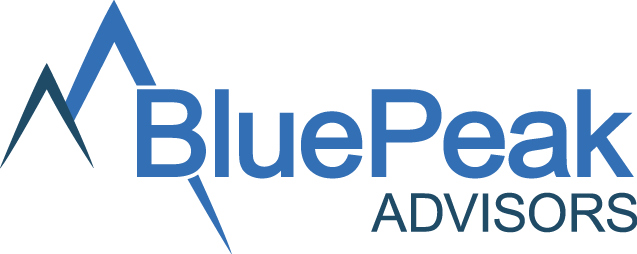The Organization Determinations, Appeal and Grievances (ODAG) area of a Centers for Medicare & Medicaid Services (CMS) Program Audit focuses on high-risk areas with the greatest potential for enrollee harm. During an ODAG program audit, CMS tests an organization’s compliance with the governing regulations (i.e., 42 CFR, Part 422, Subpart M). Samples are reviewed to ensure proper procedures are followed when processing the coverage request, correct clinical criteria is applied, and the denial is appropriate. If non-compliance is identified, CMS may issue a finding of non-compliance (i.e., Sponsor did not make appropriate coverage decisions for Medicare Part C required services), which can result in an Immediate Corrective Action (ICAR) if pre-service determinations are impacted.
A review of summaries of the Qualified Independent Contractor’s (QIC) decisions on Part C appeals in 2022 and the April 2022 report issued by the U.S. Department of Health and Human Services Office of Inspector General (OIG) supports that Medicare Advantage Organizations (MAOs) generally make an appropriate denial of organization determinations upon initial review. However, the OIG found that 13% of pre-service organization determination denials and 18% of non-contract provider payment denials rendered by 15 of the largest MAOs over a week in June 2019 should have been approved. For those MAOs that “self-correct” and overturn the organization determination on appeal, enrollees are still impacted by a delay in access to care and providers can experience a delay in payment for covered services. Specific to payment determinations, an MAO’s incorrect denial and assignment of cost share can impact enrollees’ appeal rights. For example, a non-contract provider claim for a service resulting from a contracted provider referral (i.e., plan directed care) that is incorrectly denied with $0 enrollee cost share assigned by the MAO is not subject to appeal in accordance with 42 CFR 422.562(c)(2). Further, the provider can hold the enrollee liable for up to the amount billed regardless of the MAO providing the enrollee with an Explanation of Benefits that says otherwise. To mitigate the risk for a finding of non-compliance from CMS, 100% compliance with 42 CFR 422.100(a) is required.
While supporting clients through ODAG program audits during the 2022 audit season, BluePeak experienced CMS identifying concerns for clinical accuracy. Specifically, CMS auditors have been concerned with MAOs applying more stringent plan policy criteria than allowed by national or local coverage criteria, not defining an emergency medical condition in accordance with prudent layperson criterion, and inappropriately denying payment for services rendered by a non-contract provider at the referral of a contract provider (i.e., plan directed care).
BluePeak also experienced CMS targeting payment determinations that indicate the denial could have resulted from processor error. Processor error was also a concern for inappropriate denials identified by the OIG in the April 2022 report.
Examples of specific concerns identified by CMS in ODAG program audits and BluePeak in mock ODAG program audits conducted in 2022 include:
- A product determined to meet all program requirements to be a drug or biologic, approved for inclusion in a major drug compendium, and/or approved by the Food and Drug Administration (FDA) as safe and effective for indications specified on the labeling is eligible for coverage when determined to be reasonable and necessary for the enrollee’s condition. Further, FDA approved drugs used for indications other than those indicated on the label are eligible for coverage if medically accepted, taking into consideration the approved drug compendia and authoritative medical literature. To avoid findings of non-compliance in a CMS program audit, MAOs must ensure criteria utilized for Part B drug organization determinations do not impose a restriction on repeat administration or dose limitation of a drug that does not exist on the approved label. Additionally, MAOs cannot limit coverage to drugs that report a specific level of indication for medical acceptance in an approved compendia when national criteria allow for coverage of drugs with any acceptable indication.
- Services and referrals given by a contract provider are considered approved by the plan unless valid notice is provided to the enrollee that the services will not be covered. In order to avoid a concern for non-compliance, when a denied non-contract provider claim identifies a referring provider who is contracted, the MAO must be able to demonstrate the enrollee was made aware in advance, via the Integrated Denial Notice or clear exclusion from coverage in the Evidence of Coverage, that the item, drug, or service would not be covered. It is not compliant for an MAO to identify plan directed care has occurred, deny the non-contract provider claim and assign $0 enrollee liability.
- Claims processors inappropriately denying claims for professional services associated with an inpatient admission for no authorization when an authorization for the inpatient admission was on file at the time the claim was processed.
- MAOs did not review payment appeals for inpatient admissions following an emergency room visit to determine the need for and request additional information to make appropriate clinical determinations.
How can our clinical subject matter experts help you?
In response to the OIG findings, CMS plans to issue clarifying guidance regarding MAOs’ application of internal coverage policies in medical necessity reviews and directs MAOs to enhance oversight of organization determinations. BluePeak partners with MAOs and delegated entities to provide customized solutions that identify and address vulnerabilities that can result in inappropriate denials of pre-service and payment organization determination and reconsideration requests.
